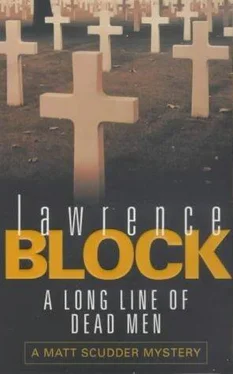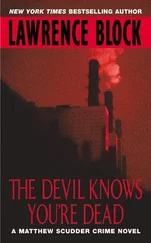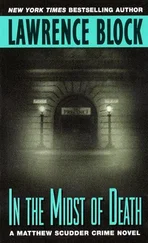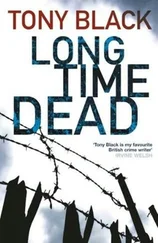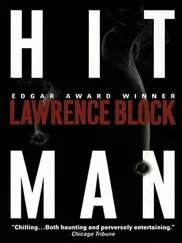Lawrence Block - A Long Line of Dead Men
Здесь есть возможность читать онлайн «Lawrence Block - A Long Line of Dead Men» весь текст электронной книги совершенно бесплатно (целиком полную версию без сокращений). В некоторых случаях можно слушать аудио, скачать через торрент в формате fb2 и присутствует краткое содержание. Жанр: Триллер, на английском языке. Описание произведения, (предисловие) а так же отзывы посетителей доступны на портале библиотеки ЛибКат.
- Название:A Long Line of Dead Men
- Автор:
- Жанр:
- Год:неизвестен
- ISBN:нет данных
- Рейтинг книги:5 / 5. Голосов: 1
-
Избранное:Добавить в избранное
- Отзывы:
-
Ваша оценка:
- 100
- 1
- 2
- 3
- 4
- 5
A Long Line of Dead Men: краткое содержание, описание и аннотация
Предлагаем к чтению аннотацию, описание, краткое содержание или предисловие (зависит от того, что написал сам автор книги «A Long Line of Dead Men»). Если вы не нашли необходимую информацию о книге — напишите в комментариях, мы постараемся отыскать её.
A Long Line of Dead Men — читать онлайн бесплатно полную книгу (весь текст) целиком
Ниже представлен текст книги, разбитый по страницам. Система сохранения места последней прочитанной страницы, позволяет с удобством читать онлайн бесплатно книгу «A Long Line of Dead Men», без необходимости каждый раз заново искать на чём Вы остановились. Поставьте закладку, и сможете в любой момент перейти на страницу, на которой закончили чтение.
Интервал:
Закладка:
"But it seemed to me we were way over the probabilities. My mind kept coming up with different explanations, and I decided the first thing to do was find out if my sense of things was accurate. So I called up a fellow I know who's always trying to sell me more life insurance and told him I had an actuarial problem for him. I ran the numbers for him and asked him what percentage of deaths you'd expect over that span of time in a group like that. He said he'd make a couple of calls and get back to me. Take a guess, Matt. How many deaths would you expect in a group of thirty?"
"I don't know. Eight or ten?"
"Four or five. There ought to be twenty-five of us left and instead we're down to fourteen. What does that say to you?"
"I'm not sure," I said, "but it certainly gets my attention. The first thing I'd do is ask your friend another question."
"That's just what I did. Tell me your question."
"I'd ask him to gauge the significance of a sample with three or four times the expected number of deaths."
He nodded. "That was my question, and he had to call somebody to find out. The answer that came back to me was that sixteen deaths out of thirty was remarkable, but it wasn't significant. Do you know what he meant by that?"
"No."
"According to him, the sample's too small for any result to be significant. We could have one hundred percent surviving or one hundred percent dying and it wouldn't really signify anything. Now if we had the same percentage in a substantially larger group, then it would mean something from an actuarial standpoint. See, actuaries like large numbers. The bigger the group, the more they can read into the statistics. If we had a hundred forty survivors in a group of three hundred, that would have some significance. Fourteen hundred out of three thousand, that would be even more significant. A hundred forty thousand out of three hundred thousand, that would begin to suggest that the sample was composed of people who lived inChernobyl, or whose mothers took DES during pregnancy. It would really set the sirens wailing."
"I see."
"I've had some experience in direct-mail advertising. We tested everything. You have to. If we had a list of half a million names, and we did a test mailing to a thousand of those names, we knew we'd get the same response ratio within a point or two from the entire list. But we knew better than to send out a test mailing to thirty names, because the results wouldn't mean anything."
"Where does that leave you?"
"It leaves me impressed with the percentages, and never mind the size of the sample. I can't get past the fact that statistically we should have suffered four or five deaths and instead we took a hit three or four times as heavy. What do you make of it, Matt?"
I gave it some thought. "I don't know anything about statistics," I said.
"No, but you're an ex-cop and a detective. You must have instincts."
"I suppose I do."
"What do they tell you?"
"To look for special circumstances. You mentioned one man who died inVietnam. Were there any other combat deaths?"
"No, just Jim Severance."
"How about AIDS?"
He shook his head. "We had two gay members, although I don't believe anybody knew they were gay when the chapter was founded. I wonder if that would have made a difference. In 1961? Yes, I'm sure it would have, and when we stood up and recounted the most interesting fact about ourselves at that first meeting, that particular fact went unmentioned. But later on both of the fellows saw fit to tell the group about their sexuality. I don't know when those revelations burst upon us, but we were still meeting at Cunningham's then, I remember that much, so it was quite a while ago. In any event, neither of them died of AIDS. Lowell Hunter very well may, in the course of time. He's told us that he's HIV-positive, but as of our meeting last month he was still completely asymptomatic. And Carl Uhl died in 1981, before anybody even heard the word 'AIDS.' I gather the disease existed then, but I certainly hadn't heard a thing about it. In any case, Carl was murdered."
"Oh?"
"They found him in his apartment inChelsea. He lived just around the corner from Cunningham's, but of course Cunningham's was long gone by the time Carl was killed. I gather it was a sex killing, some sort of sadomasochistic game gone out of control. He was tied up and wearing handcuffs and a leather hood, and he'd been eviscerated and subjected to sexual mutilation. It's a hell of a world we live in, isn't it?"
"Yes."
"After I spoke to my insurance man, I spent a few nights sitting up late and trying to concoct explanations. The first, of course, is sheer chance. There might be long odds against such a high number of deaths, but any gambler will tell you that long shots come in all the time. In the long run you'll go broke betting on them, but what is it they say? In the long run we're all dead, which, when you stop and think of it, is one of the club's underlying principles." He picked up his glass, but he still didn't drink the damn thing. "Where was I?"
"Sheer chance."
"Yes. No way to rule it out, but I set it aside and looked for other explanations. One that occurred to me was that the group was composed of men with a strong predisposition toward early death. It seemed at least arguable that natural selection might have operated to steer such persons into our club. A person genetically destined for an early grave might be aware of his fate on some unconscious level, and might thus be more likely than the next fellow to accept an invitation to join a group preoccupied with death. I don't know whether or not I believe in fate, it probably depends when you ask me, but I certainly believe in genetic predisposition. So that's one possibility."
"Tell me some of the others."
"Well, another one that came to me is a little more mind-over-matter. It strikes me as possible that the club itself could have the effect of increasing its members' chances of dying young."
"How?"
"By focusing our attention on our own mortality to an unnatural degree. I'd hate to argue that a man can prolong his life by systematically denying his own mortality, but it's still possible that we can hasten the day by sitting around waiting for it, and getting together once a year to find out who caught the bus. I'm sure there's a part of me that longs for death, just as there's another part that wants to live forever. Maybe our meetings strengthen the death wish at the expense of the life urge. The mind-body connection is sufficiently established these days that even the doctors are grudgingly aware of it. People are vulnerable to illness because of their mental state, they become accident-prone, they make dangerous decisions. It could be a factor."
"I suppose it could." I wanted more coffee, and I'd barely raised my head to look around for the waiter when he hurried over to fill my cup. I said, "Homer Champney sounds like a fellow with a pretty strong life urge."
"He was a remarkable man. He had more energy and zest for living well into his nineties than most men ever have. And don't forget he was of a generation that didn't live as long as we do today, or stay as active. A man our age was supposed to be ready for a rocking chair, assuming he still had a heartbeat."
"What about the others in his chapter?"
"They died," he said ruefully, "and that's all I've ever known about them. I don't remember any of their names. I only heard them the one time, when Homer read the list and burned the paper it was written on. He made a real point of never mentioning any of their names again. As far as he was concerned, the chapter was closed, period. I don't know how long they lived or how they died." He laughed shortly. "For all I know, they never even existed."
"What do you mean?"
"It's a thought I haven't entertained in years, but it came to me late one night and I've never entirely forgotten it. Suppose there never was a chapter before ours. Suppose Homer picked those thirty names out of the phone book. Suppose he made up the whole kit and caboodle, including the man who'd fought in the Mexican War, along with the legends about Mozart and Isaac Newton and theHangingGardens ofBabylon. Suppose he was just a nut with a gift of gab who thought it would be interesting to eat beef once a year with a group of young fellows while he waited for the man with the scythe."
Читать дальшеИнтервал:
Закладка:
Похожие книги на «A Long Line of Dead Men»
Представляем Вашему вниманию похожие книги на «A Long Line of Dead Men» списком для выбора. Мы отобрали схожую по названию и смыслу литературу в надежде предоставить читателям больше вариантов отыскать новые, интересные, ещё непрочитанные произведения.
Обсуждение, отзывы о книге «A Long Line of Dead Men» и просто собственные мнения читателей. Оставьте ваши комментарии, напишите, что Вы думаете о произведении, его смысле или главных героях. Укажите что конкретно понравилось, а что нет, и почему Вы так считаете.
